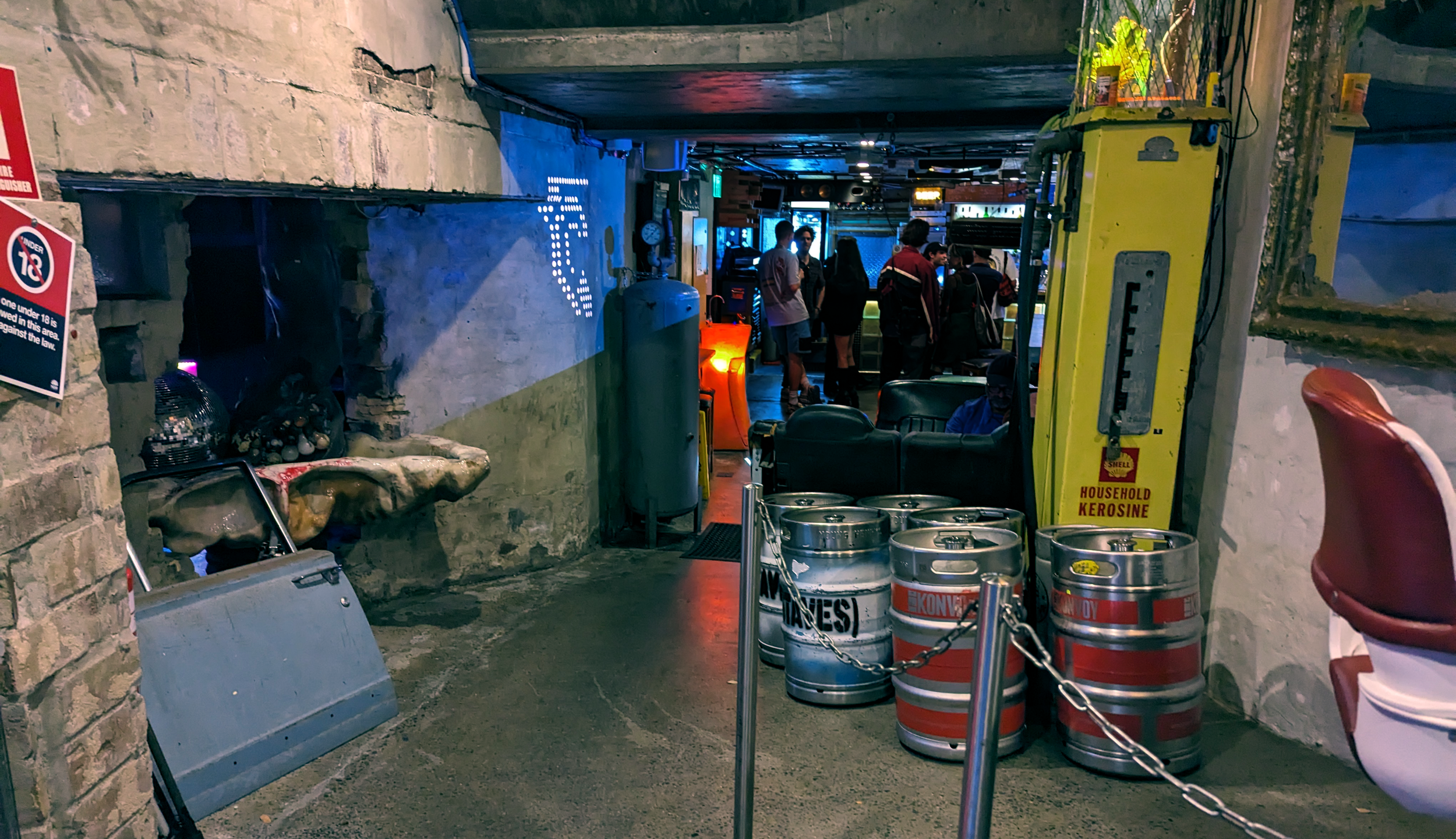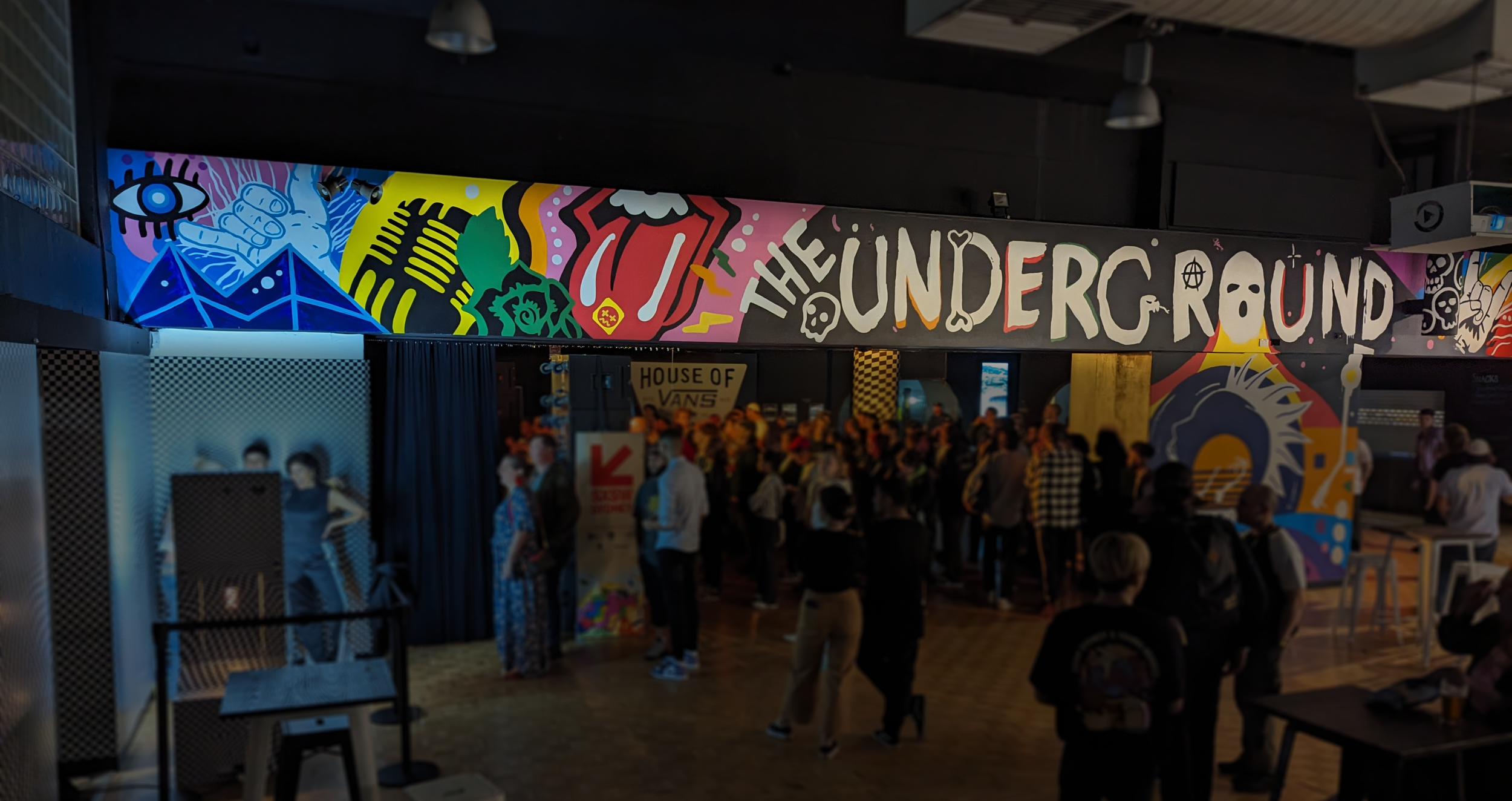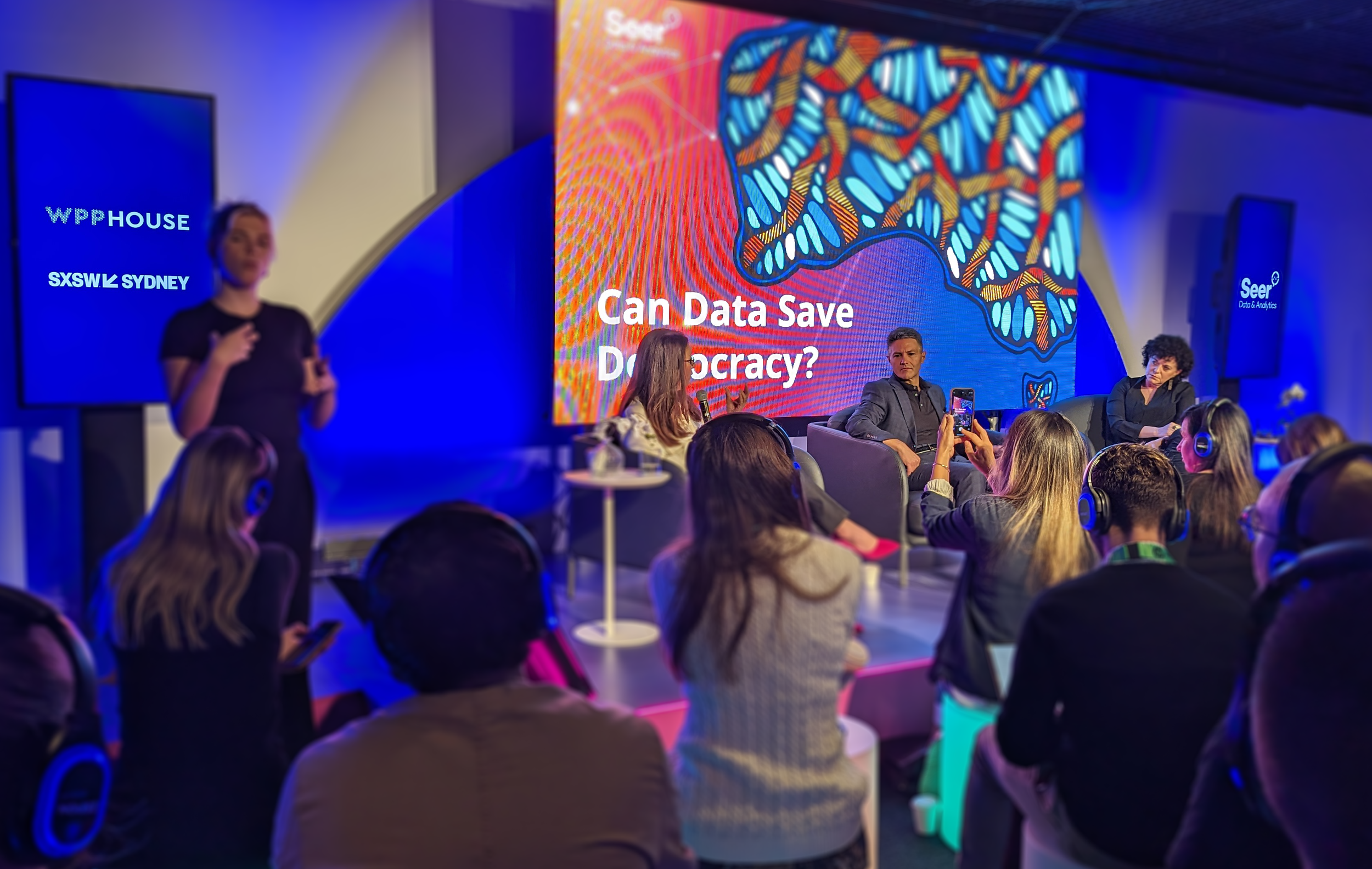My first SXSW
(Australia, 2023)
Last year I attended my first SXSW, it was in Sydney and to say that it was jam packed would be an understatement. From early in the morning, to early the following morning, there was always something on.
To anyone who hasn’t gone to one, I definitely recommend it. For me it was supposed to be a holiday, but I don’t think I ended up with a single day where I wasn’t busy.
To be honest, it was crazy and I definitely consumed more information than I could ever hope to meaningly convey. But there were some things that just jumped out at me:
Welcome to Country
For anyone who isn’t Australian, we here have a pretty poor track record of reconciliation with the Traditional owners of our country. There’s a lot of history and it’s something that I’m definitely not able to cover with anything like the nuance it deserves. One of our current initiatives is to include a Welcome to Country at the start of a meeting or event, you can read more about it here: https://www.indigenous.gov.au/contact-us/welcome_acknowledgement-country
Being a large international event, there were speakers from all over the globe, and I have to say that I loved the reaction that various international speakers had to the welcome to country. For many this was the first time that they had encountered something like this and the reactions, whilst varied, were overwhelmingly positive.
From the talk by Genevieve Bell “The New Cybernetics is Here!”
There was a lot said about Welcome to Country, but for me it was the reactions of Genevieve Bell that was the most impactful. She reflected on it in relation to events that she had taken part of in other areas of the world where native title has also been a conflicted topic and where such a statement isn’t made.
her talk also fundamentally changed and expanded my internal definition of Cybernetics. If you ever get a chance to hear her talk, do it.
The People
One of the things that’s I’d consistently heard about SXSW was that the people are what really make it. This is absolutely true, with people from most walks of life and coming to the event from such a wide array of places/fields of work/study I quickly found that the people were just as interesting (if not more so) than the talks.
The Music
When I booked it, I didn’t realise that it’s actually a music festival in disguise… this was something that was quickly corrected when hearing some of the first key note speakers. I started re-reading the line-up and quickly realised that with music starting early in the afternoon and finishing early in the morning, I wasn’t going to be getting much sleep.
I spent a portion of the first afternoon figuring out where all the venues were and the best ways to get between them. This saved me so much time later on.
The music was amazing! I really recommend checking out the lineup (there are links to both a Spotify and Apple playlist) https://sxswsydney.com/news/heres-the-sxsw-sydney-2023-music-festival-lineup-so-far/
What did I take away from it?
Outside of the reactions, the music, and the people, there was a lot to cover. I was up and moving for 16+ hours a day for the entire week, attending talks, meet-ups, gigs, and mixers across as many topics as you could imagine. But for all of that, there were some common threads that jumped out at me.
Artificial Intelligence
Everyone wants to talk about 'AI', but like every new buzzword many were unable to provide solid examples of how it can be applied to their problems. On the generative side, surprise! it's not the end of everything creative. It simply lacks the nuance and originality of a human.
What it represents in it's current form is:
A new and potentially powerful tool for people in creative industries, something that can reduce toil and allow people to spend more time coming up with the new and different. Taking time to learn it and get it to do what you actually want is important.
A threat to the low effort and low originality section of the creative market.
An opportunity for greater visibility / discoverability in wide and deep datasets (e.g. indexing of video catalogues, a new way to explore internal documentation libraries, etc).
This isn’t to say that this is all that it will ever be, far from it. But as of late 2023 AI is in the hype phase in most sectors, whilst only just starting the climb to the productivity plateau in others.
Authenticity
All businesses are experiencing problems as being seen as Authentic.
This is a natural result of companies gaming peoples perceptions over the years through deceptive practices, but the disconnect that this is causing between companies and the customers that they rely on is having increasing impacts on their bottom line. This is being felt in all sectors, but most sharply in media and marketing for whom engagement is everything.
Some of this is just a result of many trends, but a good example is that of:
Companies spending more time having a political opinion.
This is fine where this relates to their core business or values and they have a demonstrated track record. But where it doesn't and they don't, this only serves to offend people. In the past this was something that people mostly glossed over, however modern consumers have spent decades being the target of increasingly savvy tactics. In the face of such experience such blatant pandering comes off as jarring and only serves to highlight the difference between a companies words and actions.
With more and more companies fearing ‘cancel culture’ and attempting to be on the right side of every political debate we are quickly reaching the point where lack of authenticity is starting to be seen as systemic. It is a becoming a bigger problem with wider social impacts, adding to the chaos and division we are currently experiencing in society.
An amusing side note:
There was some conjecture that companies don't hate this as it draws attention away from their rampant tax avoidance, thus failing to meet the core responsibility that they have to the societies in which they operate (which is: paying their fair share).
The invasiveness of tech into our personal lives.
Specifically there was a lot of discussion on the ethical implications on the collection of data so that companies can monetise it. As someone in an industry that does this, it got me to thinking on why we do it. Now for us, a significant driver is that customer expectations on what our product should cost to deliver (what they’re willing to pay for it) doesn’t match the actual cost of delivery. So we have to make up the difference in other ways.
I ask that you think on this question:
Companies started becoming more invasive in their data collection because they were trying to figure out how to make money in a market where people believe that things should be either free or cheap.
When considering ethics in the context of collection and use of customer data, should we start the conversation with how we as customers pay for services we consume, and maybe we should stop expecting them to be ‘free’?
Governance and Transparency in the Tech space
The previous topic dovetails into other discussions that were happening around governance and transparency in tech. Which if we are honest, are functionally non-existent in many areas. All spaces where the label “Technology” can be applied are too complex and move at too fast a pace for government policy to catch up. In a world that evolves at an increasing rate this will result in an exponential amount of un-regulated space in which harm can occur.
There are a lot of people out there doing good work in this space, but generally they don’t appear to be in government.
The impacts of Tech
Not to say that there wasn’t a lot happening that would have fit under this banner, this was an innovation conference after all, but the talks I attended focused the impact on economics and government. This stuff was fun, my key take aways:
GDP is a crappy metric. The way in which it is measured doesn't take into account much of the economic activity in society, and what is and isn't included in it varies from country to country. This isn't because of a 'dark' economy of guns, drugs, and cash in hand deals. It’s because the methods that we have to measure economic impact haven't evolved with technology.
Tech has decreased the time that people spend searching for a job, and as such society can carry a much lower unemployment rate before we have to worry about the inflationary pressure it causes.
By increasing governments ability to access and interpret data (business, not personal) at both the local and federal levels we are able to drive better and more detailed policy decisions and improve engagement.
Australian government has a trust problem when it comes to people and data. This is a problem that only time and strong bipartisan/community support can resolve.























